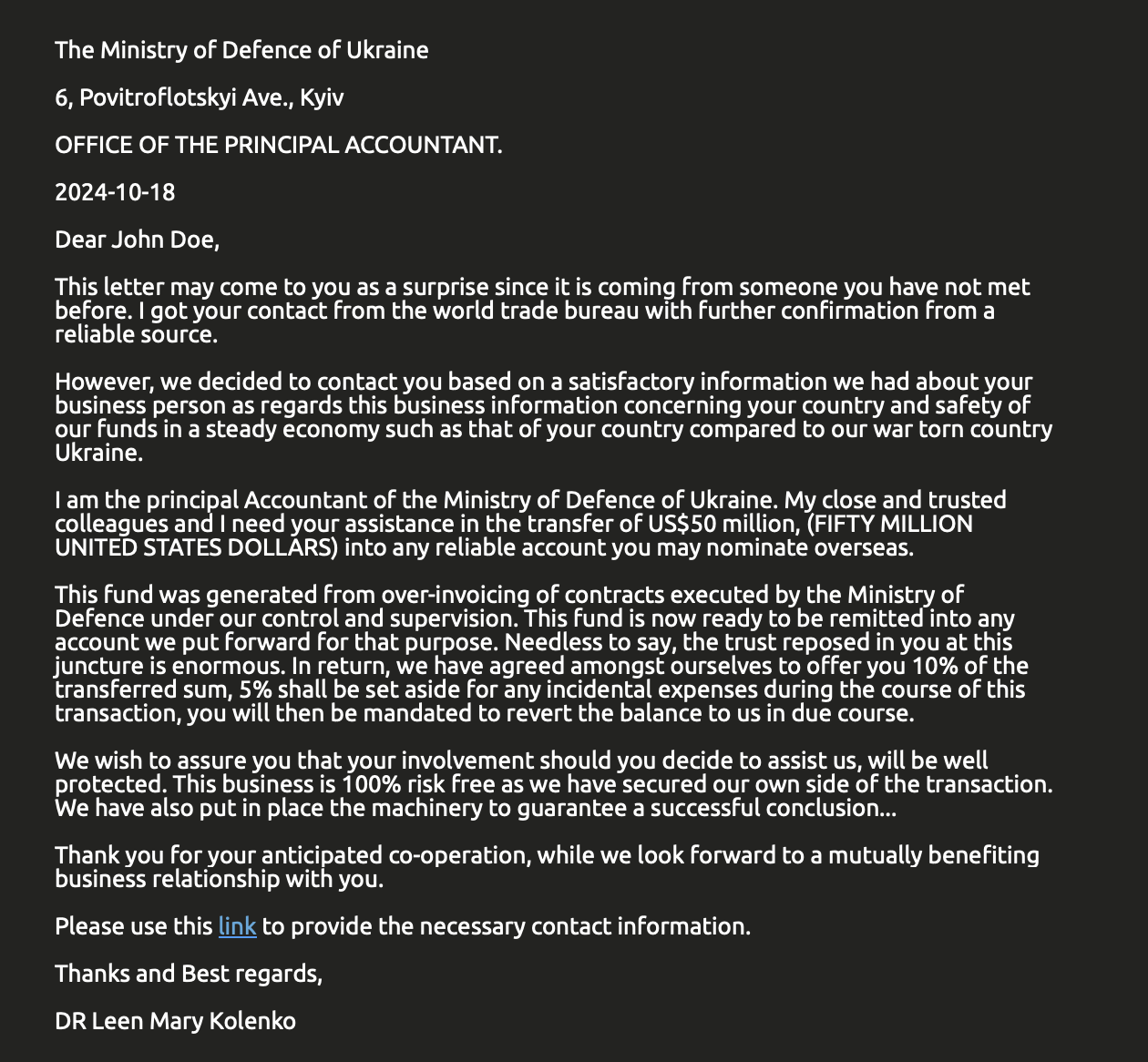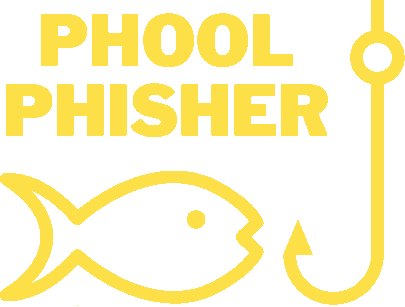

"The Nigerian Prince" scam is a type of an advance-fee scam. The goal is to make the victim pay upfront fees towards receiving a big payoff. Versions of the scam can be traced as far back as the 18th century. But the modern version exploded with the growing popularity of email communication and the low cost of harvesting email addresses.
The important thing to remember is that the email doesn't need to have anything to do with a Nigerian Prince. That's just one variant of the scam that became extremely popular. In fact the scam probably originates somewhere else. The scammers choose Nigeria because the country's reputation for corruption made the email somewhat plausible. Newer variants may latch onto any country or part of the world known for turmoil or corruption. For example, this email relies on the recipient's knowledge of the war in Ukraine to make the offer seem possible.
Spelling or grammar mistakes are a feature not a bug of these sorts of scams. The sender is hoping that only someone who wouldn't be bothered by such mistakes will follow up. They're filtering out the cautious or attentive. It's a for the scammer to ensure that they devote their time and resources to receivers who are most likely to fall for the scam.
Just remember Phool Phisher's Golden Phool Rules. Any offer that's too good to be true, probably is. The scammers goal here is to get the most gullible recipients to respond and then slowly extract personal information or fees from them.
Don't fall for it!
